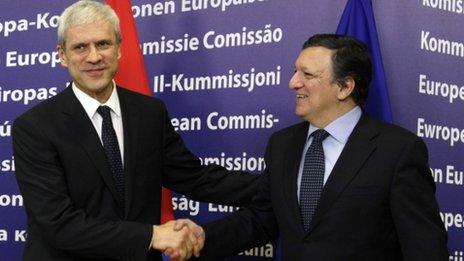Serbia Gay Pride march returns after four years
- Published
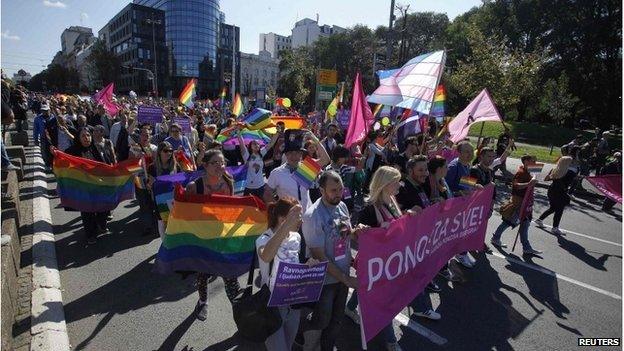
Serbia is keen to show the European Union it is becoming a more tolerant society
Serbia's first Gay Pride march for four years has been held in the capital Belgrade, amid huge security, including special forces and armoured vehicles.
Waving rainbow flags, hundreds took the short march through empty streets.
Authorities had cancelled the event every year since marchers were attacked in 2010 - nine years after Gay Pride was first held in Belgrade.
Serbia is keen to show increasing tolerance as it seeks to join the EU, the BBC's Guy De Launey says.
Keeping Brussels happy is undoubtedly the motivation for allowing the Gay Pride march to go ahead, our correspondent in Belgrade says.
Prime Minister Aleksandar Vucic had announced he would not attend the event due to prior engagements - but also made it clear he would not have gone even if he had been free.
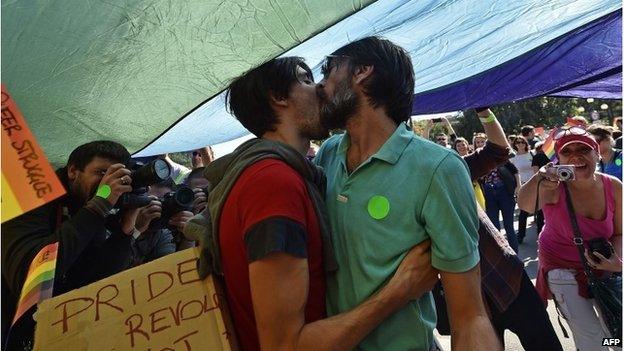
The atmosphere was festive with many human rights activists among the marchers
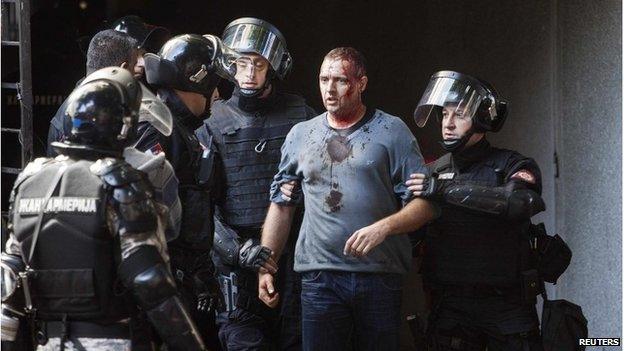
But anti-gay protesters turned out and there were some arrests
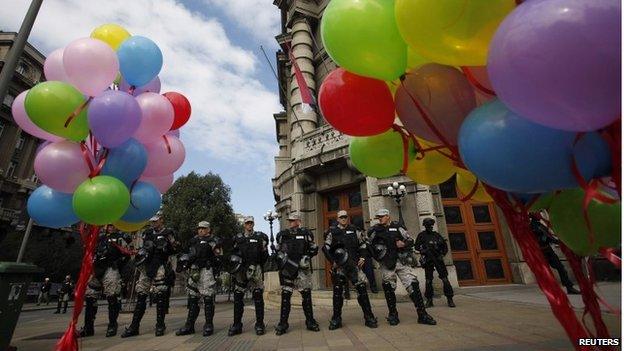
Hundreds of heavily-armed police and special forces were on hand
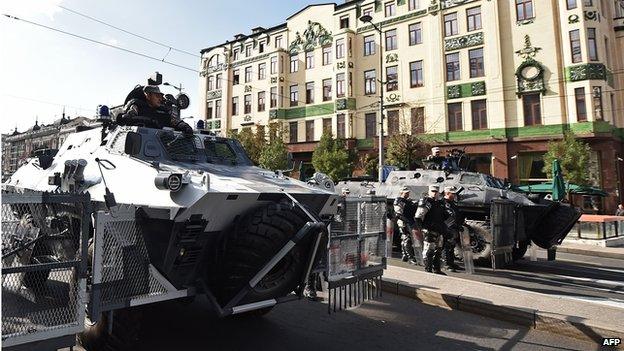
Even armoured cars were deployed - after all previous instances of violence had forced authorities to cancel Gay Pride marches for years
Our correspondent says that reflects widespread feelings in Serbia.
The patriarch of the influential Orthodox Church has condemned the event.
Two-thirds of respondents to a survey four years ago said they viewed homosexuality as a disease.
But Sunday's march took place without incident, with marchers blowing whistles as a police helicopter flew over them.
Participants marched through the centre of the city to the National Assembly, where ambassadors from numerous European countries addressed the crowd.
"I feel phenomenal. Our efforts of the past three years have borne fruit," organiser Boban Stojanovic told Reuters news agency.
On Saturday evening, anti-gay rights campaigners demonstrated in the capital in anticipation of the Gay Pride march on Sunday.
But the influence of the far right has declined in recent years, our correspondent says, and several government ministers have spoken in favour of the march.
Earlier in September a German LGBT ( lesbian, gay, bisexual or transgender) rights speaker was treated in hospital after being beaten in Belgrade.
In response to the attack, Interior Minister Nebojsa Stefanovic said: "We will not allow this kind of thing to remain unpunished."
The march in 2010 was the only gay pride parade to go ahead in the Serbian capital since 2001.
- Published13 September 2014
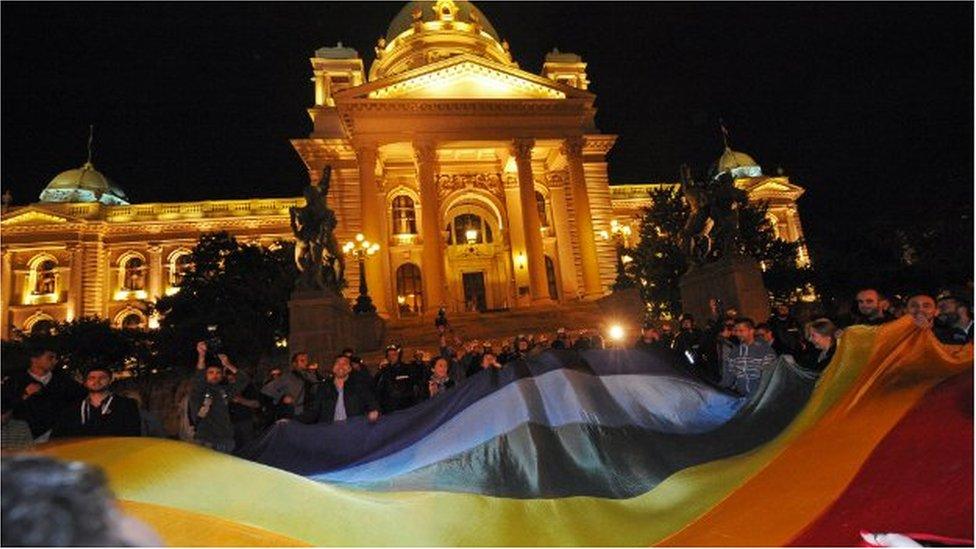
- Published4 October 2012
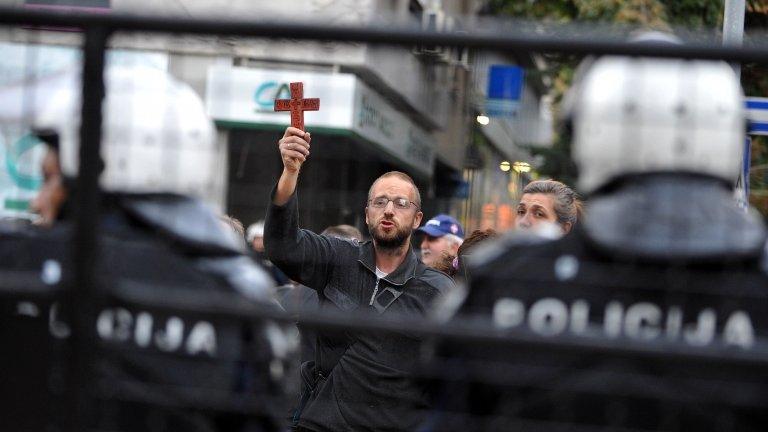
- Published1 March 2012
